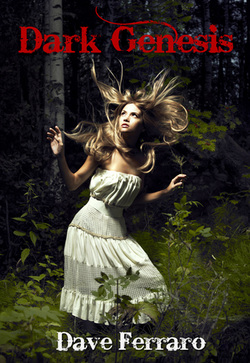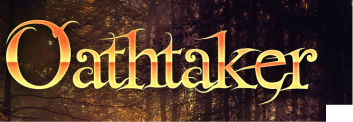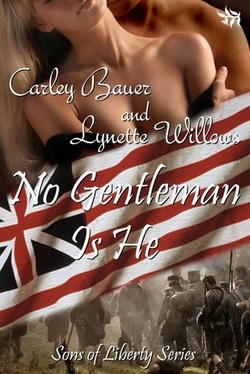
* * *
I was provided a copy of DARK GENESIS by the author in exchange for a fair and honest review.
*SPOILERS*
I am a bit at a loss to know where to begin with DARK GENESIS. I found some aspects highly creative while others made the reading a bit difficult. There were some editing errors, which for the most part, I was able to overlook. There also were numerous grammatical errors, which unfortunately, I found it more difficult to see beyond. I fully understand that dialogue is intended to portray how people speak in real life and so grammar may easily be--and indeed often ought to be--brushed aside in that regard. However, the prose itself flows so much more smoothly when things are in order and I found that that was, all too often, not the case. Thus, some portion of my review is attributable to the same.
DARK GENESIS tells the story of Alyssa, who awakens in a world unknown to her and with no recollection of her past. The world is an alternate reality where a wide variety of creatures are found: witches, vampires, werewolves, and more. In this regard, it is rather like TOY STORY in that in TOY STORY all of the possible different kinds of toys come together. In DARK GENESIS, all the different kinds of creatures are found. Just when I would think we’d been introduced to all the various types, another would pop up—this time a teleporter—now a Frankenstein—now a herbalist/healer—and so on.
Alyssa discovers when she destroys certain “marked” people/creatures, that some portion of her memories come back to her. This storyline concept was quite creative. However, I found that after about the first 30% of the story, there was a bit too much more of the same: find the “bad guy,” escape from the “bad guy,” “return to the bad guy,” and ultimately, destroy the “bad guy.” Thus, for me the story could have been fairly sufficiently trimmed down.
My primary issue with DARK GENESIS, was that I was never certain if it was supposed to be a dark story or a comedy and I was never convinced that Alyssa was who or what she was said to be. Of course, this was a fantasy story and so, all things are open and possible. However, the “real life” portions of the story—those things that show the vast differences between the worlds at play—were unconvincing. Specifically, a 17 year old CIA agent. (Hmmmm.) Further, while the dialogue was at times funny and cryptic, it also left me with an image of Alyssa as something more like a 12 year old than a 17 year old. Thus, I found it difficult when Alyssa engaged in more adult behavior.
All in all, DARK GENESIS was interesting, but did not leave me longing to return to it or begging for the next installment.
Find out more about DARK GENESIS here.
I was provided a copy of DARK GENESIS by the author in exchange for a fair and honest review.
*SPOILERS*
I am a bit at a loss to know where to begin with DARK GENESIS. I found some aspects highly creative while others made the reading a bit difficult. There were some editing errors, which for the most part, I was able to overlook. There also were numerous grammatical errors, which unfortunately, I found it more difficult to see beyond. I fully understand that dialogue is intended to portray how people speak in real life and so grammar may easily be--and indeed often ought to be--brushed aside in that regard. However, the prose itself flows so much more smoothly when things are in order and I found that that was, all too often, not the case. Thus, some portion of my review is attributable to the same.
DARK GENESIS tells the story of Alyssa, who awakens in a world unknown to her and with no recollection of her past. The world is an alternate reality where a wide variety of creatures are found: witches, vampires, werewolves, and more. In this regard, it is rather like TOY STORY in that in TOY STORY all of the possible different kinds of toys come together. In DARK GENESIS, all the different kinds of creatures are found. Just when I would think we’d been introduced to all the various types, another would pop up—this time a teleporter—now a Frankenstein—now a herbalist/healer—and so on.
Alyssa discovers when she destroys certain “marked” people/creatures, that some portion of her memories come back to her. This storyline concept was quite creative. However, I found that after about the first 30% of the story, there was a bit too much more of the same: find the “bad guy,” escape from the “bad guy,” “return to the bad guy,” and ultimately, destroy the “bad guy.” Thus, for me the story could have been fairly sufficiently trimmed down.
My primary issue with DARK GENESIS, was that I was never certain if it was supposed to be a dark story or a comedy and I was never convinced that Alyssa was who or what she was said to be. Of course, this was a fantasy story and so, all things are open and possible. However, the “real life” portions of the story—those things that show the vast differences between the worlds at play—were unconvincing. Specifically, a 17 year old CIA agent. (Hmmmm.) Further, while the dialogue was at times funny and cryptic, it also left me with an image of Alyssa as something more like a 12 year old than a 17 year old. Thus, I found it difficult when Alyssa engaged in more adult behavior.
All in all, DARK GENESIS was interesting, but did not leave me longing to return to it or begging for the next installment.
Find out more about DARK GENESIS here.





